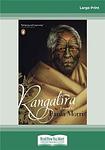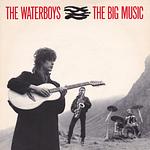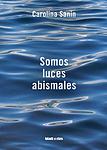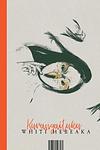The Greatest New Zealander, Russian, Colombian "Fiction" Books Since 2010
Click to learn how this list is calculated.
This list represents a comprehensive and trusted collection of the greatest books. Developed through a specialized algorithm, it brings together 300 'best of' book lists to form a definitive guide to the world's most acclaimed books. For those interested in how these books are chosen, additional details can be found on the rankings page.
Genres
Countries
Date Range
Reading Statistics
Click the button below to see how many of these books you've read!
Download
If you're interested in downloading this list as a CSV file for use in a spreadsheet application, you can easily do so by clicking the button below. Please note that to ensure a manageable file size and faster download, the CSV will include details for only the first 500 books.
Download-
1. The Luminaries by Eleanor Catton
Set during the New Zealand Gold Rush of the 19th century, this novel follows Walter Moody, a prospector who stumbles upon a secret meeting of twelve local men who are trying to solve a series of unsolved crimes. As the story unfolds, it becomes clear that the crimes, which include a rich man's disappearance, a prostitute's attempted suicide, and a huge fortune found in a drunkard's cottage, are all interconnected. The novel's complex narrative structure, which uses astrology to organize its characters and events, adds another layer of intrigue to the story.
-
2. The Sound Of Things Falling by Juan Gabriel Vásquez
"The Sound Of Things Falling" is a thought-provoking novel that delves into the complex and haunting aftermath of the drug trade in Colombia. Set against the backdrop of a turbulent country, the story follows the lives of two men whose paths intertwine in unexpected ways. Through vivid storytelling and poignant reflections, the book explores themes of memory, guilt, and the lasting impact of violence on individuals and society.
-
3. The Mountain And The Wall by Alisa Ganieva
"The Mountain and the Wall" is a thought-provoking novel set in a fictional region of Russia, where a massive wall is being constructed to separate the Muslim population from the rest of the country. Through the eyes of various characters, the book explores the impact of this division on individuals and communities, delving into themes of identity, religion, and the struggle for freedom. As tensions rise and conflicts erupt, the story highlights the complexities of human relationships in a divided society.
-
4. Zuleikha by Guzel Yakhina
"Zuleikha" is a captivating historical novel set in 1930s Soviet Union, following the life of Zuleikha, a Tatar woman who is forcefully taken from her home and exiled to Siberia. As she struggles to adapt to the harsh conditions of the remote village, Zuleikha finds solace in her resilience and the unexpected connections she forms with her fellow exiles. Through her journey of survival, love, and self-discovery, Zuleikha's story beautifully explores themes of identity, freedom, and the indomitable human spirit.
-
5. The Natashas by Yelena Moskovich
"The Natashas" is a haunting and lyrical novel that weaves together the stories of three women: a young Russian prostitute searching for freedom, a French actress escaping her troubled past, and an American student seeking connection. Set against the backdrop of Paris, the book explores themes of identity, displacement, and the lengths people go to find themselves and their place in the world.
-
6. Rock, Paper, Scissors And Other Stories by Maxim Osipov
"Rock, Paper, Scissors And Other Stories" is a collection of captivating short stories that delve into the lives of ordinary people in a small Russian town. Through these interconnected tales, the author explores themes of love, loss, and the complexities of human relationships. With a keen eye for detail and a deep understanding of the human condition, the stories in this book offer a poignant and thought-provoking glimpse into the lives of individuals navigating the challenges of modern-day Russia.
-
7. Duermevela by Melba Escobar
"Duermevela" is a compelling narrative that delves into the complexities of human consciousness and the blurred lines between wakefulness and dreaming. The story unfolds through the experiences of its protagonist, who navigates a series of surreal and introspective episodes, challenging the reader's perception of reality. As the character's journey progresses, the novel explores themes of identity, memory, and the subconscious, weaving a tapestry of psychological intrigue that invites contemplation about the nature of our existence and the enigmatic state that exists between sleeping and being awake.
-
8. The Hut Builder by Laurence Fearnley
"The Hut Builder" is a captivating novel that follows the journey of a middle-aged man named Boden Blackwood, who retreats to the remote wilderness of New Zealand to build his dream hut. As he immerses himself in the challenging task of constructing the hut, Boden's solitude is interrupted by unexpected encounters with the locals, each bringing their own stories and struggles. Through these interactions, Boden discovers the profound impact that human connections can have on one's sense of purpose and belonging. With beautiful prose and a deep exploration of solitude and community, this novel takes readers on a reflective and moving journey of self-discovery.
-
9. Los Estratos by Juan Cárdenas
"Los Estratos" is a thought-provoking novel that delves into the complexities of social stratification and personal identity in contemporary Colombia. Through the eyes of its protagonist, a middle-aged man undergoing an existential crisis, the narrative explores themes of class, race, and the search for meaning in a society marked by deep inequalities and historical scars. As he navigates a series of encounters with various individuals from different social layers, the protagonist's introspective journey reveals the fragmented nature of human experience and the elusive quest for self-understanding within the stratified landscape of modern life.
-
10. Rangatira by Paula Morris
"Rangatira" is a historical fiction novel set in 19th century New Zealand. The story follows the journey of a young Maori chief, who, after being chosen as a rangatira (leader) of his tribe, embarks on a voyage to England. Through his experiences in the unfamiliar Western world, the protagonist grapples with cultural clashes, identity, and the complexities of colonialism. The narrative seamlessly weaves together Maori mythology, European history, and personal reflections, offering a thought-provoking exploration of indigenous perspectives in a changing world.
-
11. The Big Music by Kirsty Gunn
"The Big Music" is a profound and lyrical novel that explores the life of a Scottish bagpiper and his obsession with composing a piece of music that captures the essence of his family's history and the rugged landscape of the Highlands. Through a series of interwoven narratives, the book delves into themes of love, loss, and the power of music to transcend time and connect generations. With its rich prose and evocative descriptions, the novel immerses readers in a mesmerizing tale of creativity, heritage, and the enduring power of the human spirit.
-
12. The Children by Carolina Sanín
The book is a haunting exploration of solitude and the unexpected ways in which lives can intersect. It follows the story of a woman who leads a solitary life in a city, her routine existence disrupted by the sudden appearance of a silent, enigmatic child at her doorstep. As she takes the child into her home, the woman is drawn into a surreal journey that blurs the lines between reality and imagination, prompting her to confront her own past and the mysteries of human connection. The narrative weaves a tapestry of magical realism and psychological depth, examining themes of loneliness, motherhood, and the search for belonging in an indifferent world.
-
13. The Bitch by Pilar Quintana
The novel explores the intense bond between a young woman and her dog as they navigate life in a remote, impoverished village on the Colombian Pacific coast. The protagonist, who struggles with the harsh realities of her environment and the societal expectations placed upon her, finds solace in her relationship with the dog. However, when the dog gives birth to a litter and a tragic event occurs, the woman is forced to confront the brutal nature of her world and the instincts that drive both human and animal behavior. The story delves into themes of motherhood, survival, and the thin line between civilization and wildness.
-
14. Somos Luces Abismales by Carolina Sanin
"Somos Luces Abismales" is a contemplative narrative that delves into the inner world of a woman who, while working as a teacher, grapples with the complexities of her existence and the nature of being. Through a series of introspective episodes and interactions with her students, she explores themes of loneliness, the search for meaning, and the human condition. The book weaves a tapestry of philosophical reflections, everyday occurrences, and the protagonist's personal revelations, painting a picture of life's profound and often overlooked moments.
-
15. The Wish Child by Catherine Chidgey
"The Wish Child" is a powerful and haunting novel that explores the lives of two children, Sieglinde and Erich, growing up in Nazi Germany. Set against the backdrop of World War II, the story delves into the complexities of their friendship and the impact of the Nazi regime on their lives. Through vivid and evocative prose, the author skillfully captures the innocence and resilience of children in a time of darkness and uncertainty, while also shedding light on the moral dilemmas faced by ordinary individuals during a tumultuous period in history.
-
16. The New Animals by Pip Adam
"The New Animals" by Pip Adam is a thought-provoking and unsettling novel that explores the lives of a group of young adults navigating the complexities of modern society. Set in a futuristic world where societal norms and expectations have drastically changed, the story follows Carla, a young woman trying to find her place amidst the chaos. As she encounters various characters and situations, the book delves into themes of identity, relationships, and the blurred boundaries between humans and animals. With its raw and evocative prose, "The New Animals" challenges readers to question the constructs of society and the essence of humanity itself.
-
17. An Orphan World by Giuseppe Caputo
In this evocative novel, a father and son navigate the margins of a Latin American city, living in poverty and facing the dual threats of violence and social discrimination. Their bond is a source of strength and resilience as they confront the challenges of their precarious existence. The son, through a series of lyrical and poignant vignettes, explores his sexuality and seeks connection in a world that is often hostile to his desires. The narrative weaves a tapestry of love, loss, and longing, painting a portrait of a relationship that defies the darkness of their circumstances with moments of beauty and tenderness.
-
18. This Mortal Boy by Fiona Kidman
Set in 1950s New Zealand, "This Mortal Boy" tells the gripping true story of Albert "Paddy" Black, a young Irish immigrant who finds himself caught up in a tragic turn of events. When Paddy is accused of murder, his fate rests in the hands of the justice system and the public's perception of him as an outsider. As the trial unfolds, the novel explores themes of prejudice, class division, and the power of love and hope in the face of adversity.
-
19. Los Días Azules by Fernando Vallejo
"Los Días Azules" is a reflective and autobiographical narrative that delves into the author's memories of his childhood and youth in Colombia. The book paints a vivid picture of the author's family life, the cultural and social environment of his upbringing, and the formative experiences that shaped his worldview. Through a series of poignant and often critical recollections, the author explores themes of love, loss, and the passage of time, all set against the backdrop of a country marked by political turmoil and societal change. The narrative is characterized by its lyrical prose and introspective tone, offering readers a deeply personal glimpse into the author's past and the moments that have defined his life's journey.
-
20. Auē by Becky Manawatu
"Auē" is a powerful and heartbreaking novel that explores the lives of three individuals in a small New Zealand town. It delves into the themes of family, loss, and resilience as the characters navigate their troubled pasts and search for redemption. With vivid storytelling and raw emotions, the book offers a profound examination of the human spirit and the impact of trauma on individuals and communities.
-
21. Bug Week & Other Stories by Airini Beautrais
"Bug Week & Other Stories" is a collection of short stories that explores the complexities of human relationships and the impact of everyday occurrences on individuals. From a woman's obsession with bugs to a couple's struggle with infertility, the book delves into various themes such as love, loss, and the search for identity. With its vivid storytelling and diverse characters, the collection offers a captivating glimpse into the intricacies of human nature.
-
22. Kurangaituku by Whiti Hereaka
"Kurangaituku" by Whiti Hereaka is a captivating and thought-provoking novel that delves into the life of a young Maori girl named Te Arepa. Set in New Zealand, the story follows Te Arepa as she navigates the challenges of her cultural identity, family dynamics, and the impact of colonization. Through her journey, the book explores themes of self-discovery, resilience, and the power of storytelling. With its rich cultural backdrop and engaging narrative, "Kurangaituku" offers a compelling exploration of identity and the complexities of the human experience.
-
23. The Axeman's Carnival by Catherine Chidgey
"The Axeman's Carnival" is a gripping historical novel set in 1918 New Orleans, during the height of the Spanish flu pandemic. As the city grapples with fear and uncertainty, a serial killer known as the Axeman terrorizes its inhabitants. The story follows three main characters—a jazz musician, a young girl, and a detective—as their lives intertwine amidst the chaos. With vivid descriptions and a suspenseful narrative, the book explores themes of resilience, identity, and the power of music in the face of darkness.
Reading Statistics
Click the button below to see how many of these books you've read!
Download
If you're interested in downloading this list as a CSV file for use in a spreadsheet application, you can easily do so by clicking the button below. Please note that to ensure a manageable file size and faster download, the CSV will include details for only the first 500 books.
Download


















